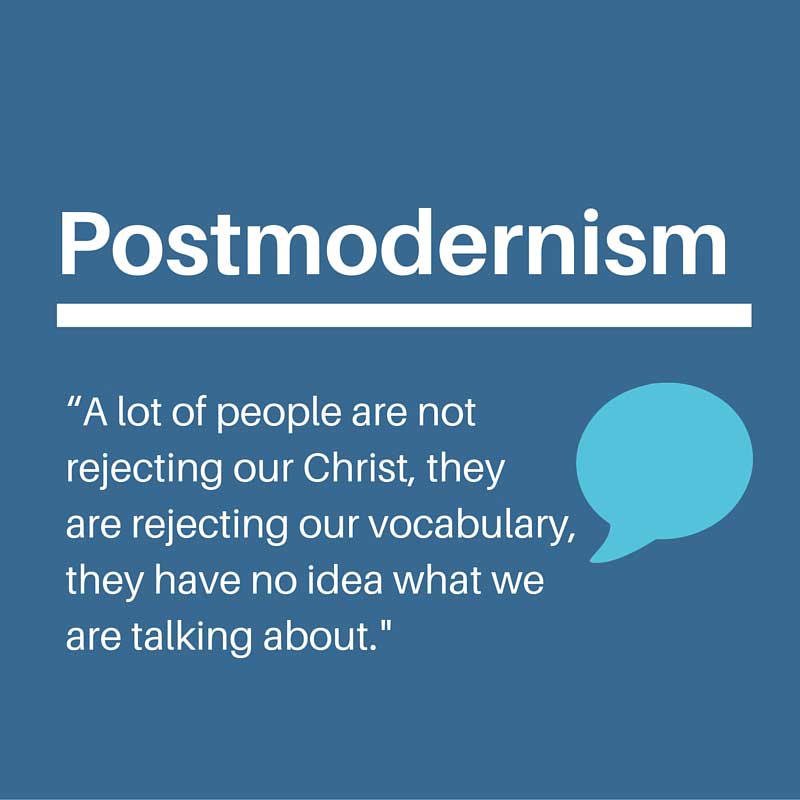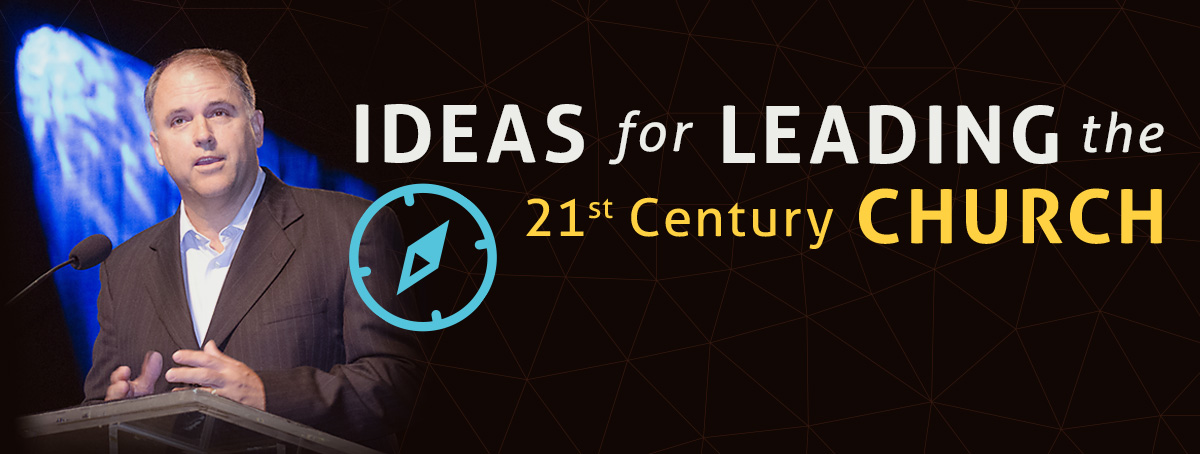Postmodernism. What does it have to do with current and future Christian ministry? Most everything! Postmodernism is affecting those who make up the rolls of my tribe of Southern Baptist Churches and all the other tribes of Christian people. We live and minster in a culture that is becoming more and more postmodern, and then post postmodern.
In my last article I wrote that modernists believed that rational thought was the ultimate way to arrive at truth. We need to be logical, but modernists carried it to the extreme. They rejected faith (since it is “illogical”) and declared “God is dead.” Modernism attempted to build a future around the progress of man while denying the existence of God, yet it failed to realize that people could not be satisfied with a spiritual void in their heart. Modernity left people spiritually bankrupt and searching.
Modernism involved construction which means to give things meaning. Postmodernism is based on deconstruction or questioning meaning. Postmodernists emphatically reject the idea of absolute truth or universal morals (which is ironic, because to claim there is no absolute truth is an absolute statement). Most everything is now being debated and reexamined because postmodernity challenges everything that was thought to be true. The problem is, postmodernism also leaves people spiritually bankrupt. People are trying to now foolishly reconstruct their broken lives with experience as the final arbitrator of truth.

People are searching. According to a 1997 USA Today poll, 46% of the men and 40% of the women in the US are “searching for the meaning and purpose of life” and I would guess that it is more true today. However, that search has moved beyond the local Christian church. Self help books, community groups, and false religions have replaced the Bible, Christian small groups, and the church as places to discover God and community.
The church’s place in society has been called into question, its message is not understood, and therefore most every aspect of church is being affected. Ron Hutchcraft said, “a lot of people are not rejecting our Christ, they are rejecting our vocabulary, they have no idea what we are talking about”. As a group they do not understand our message, and it is our fault to large degree. So, all of our channels of communicating our message must be examined for clarity. This impacts our approaches to evangelism, preaching and even our worship services.
One area changing greatly is personal evangelism or communicating the gospel to a people who are wondering spiritually. The following highlights a few of the shifts taking place.
Modernity (involved more)
Single encounters
One-way communication
Spiritual “laws” then personal story
Giving lots of information
Argumentation Consideration
Highlight eternal benefits
Postmodernity (involves more)
Multiple encounters
Two-way dialogue
Personal story then spiritual principles
Asking good questions
Consideration
Highlight earthly benefits
How people hear and receive our messages, both verbal and nonverbal, has changed because postmodern filters are different. Words are no longer enough. It is no longer enough to speak the truth in Sunday School (Bible Study) or proclaim the message from the pulpit; we must live and communicate our message effectively, remembering it is fruitless to blame the receivers if our message fails to get through. It has been said, “I can’t hear you because your actions are speaking too loudly.” I would suggest that in a postmodern culture, Christians communicate with the sensitivities of a foreigner in a foreign mission field. Jesus said they would know the truth by our love.
Spiritually searching postmodern people are looking for several things from our worship services, but mainly they want to know if God can be found there. They also want to a safe place to explore Christianity, experience God’s presence, understand the message and see the Christian life lived out in authentic relationships through the struggles of life.
Is it worth the effort to learn about postmodernism and to care about its impact? Absolutely. God is not dead, he created and loves the postmodern people in today’s culture! According to His Word, we should too!
The Art of Personal Evangelism: Sharing Jesus in a Changing Culture by Will McRaney, Jr.
Preaching with Conviction by Kenton Anderson
Evangelism Made Slightly Less Difficult by Nick Pollard
If you are interested in exploring these topics, consider reaching out to me to explore possible ways I could assist you and those around you in understanding and adjusting your ministry in light of the radical changes taking place.
